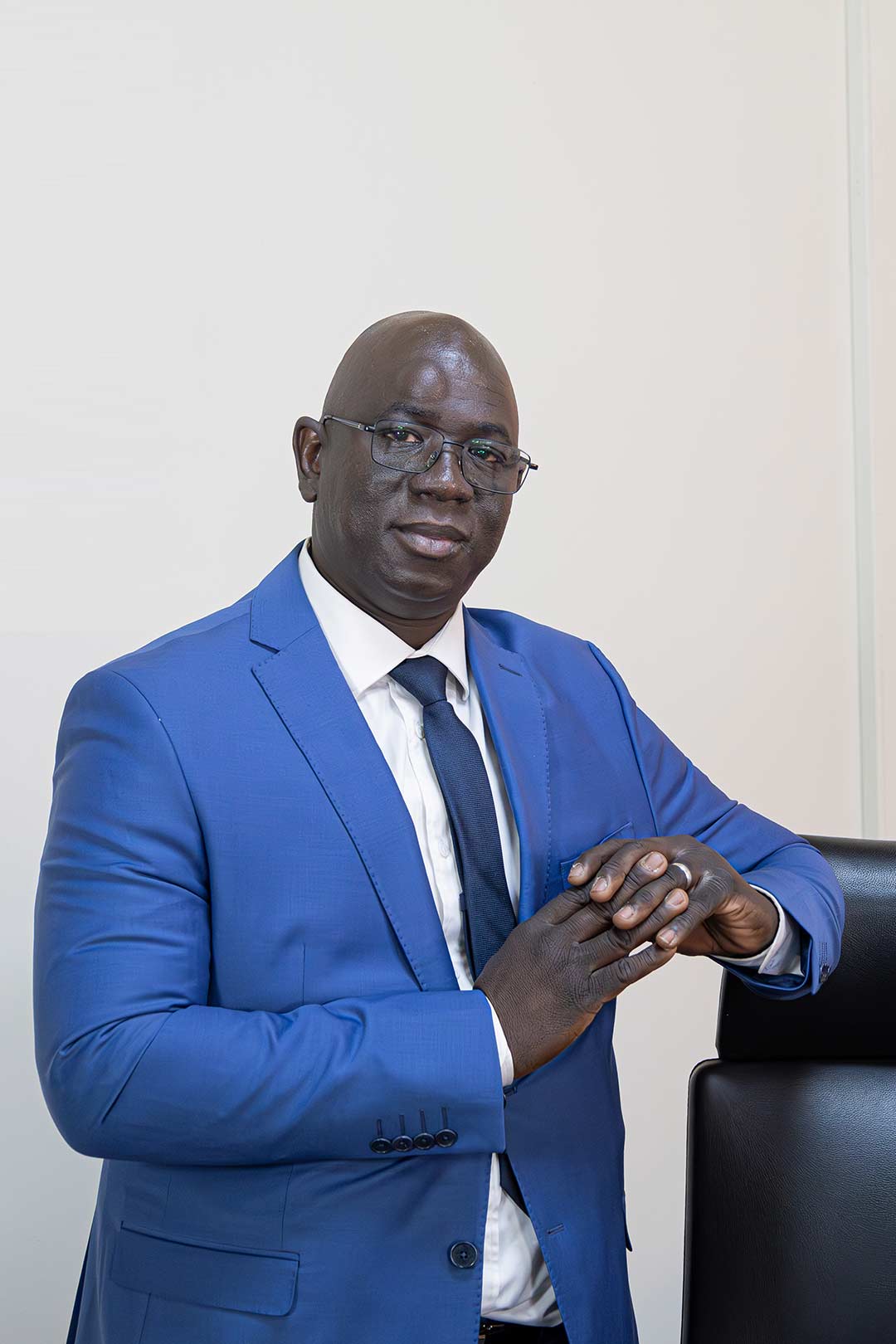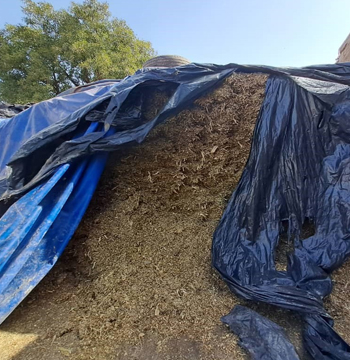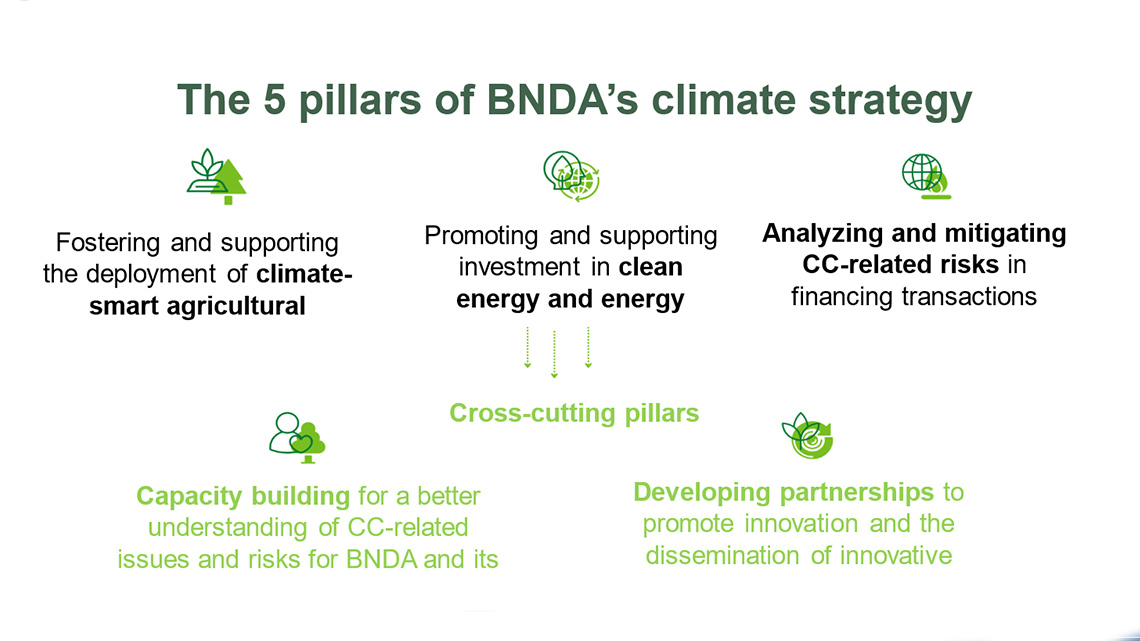Menu right

Recherche
Environment & climate change
Our Corporate Social Responsibility (CSR) policy, 15 commitments, three main lines of action in favor of Sustainable Development. This makes us a benchmark bank and a leader in Mali in the field of CSR.
- Our 15 commitments
- Our three main CSR priorities
- Environmental and Social Management System (ESMS)

Our business places us at the heart of the environmental and social consequences of the activities of the companies we finance. Aware of this reality, we have set up an Environmental and Social Management System (ESMS) that requires us to address the environmental and social impacts and/or risks of projects at every stage, through rigorous environmental and social due diligence carried out by our CSR department. This system applies to all our financing commitments and is now an integral part of our day-to-day financing activities.
- Measures to combat climate change.
Aware of the consequences of climate change, we have adopted a climate strategy based on five (5) pillars, aiming to translate and materialize our vision in the fight against change. In terms of measures to combat climate change, we believe that our contribution lies primarily in promoting and financing climate change adaptation and mitigation practices in the agricultural and energy sectors.

Solar irrigation

Drip System

Organic fertilizer
Since 2017, BNDA has adopted a Corporate Social Responsibility (CSR) Policy in order to act in favor of environmental and social sustainability. To integrate environmental and social issues into our financing activity, we have set up an Environmental and Social Management System supported by internal procedures. As part of this process, our CSR department carries out environmental and social due diligence on all our SME/SMI/LDC projects, with the aim of identifying and assessing environmental and social risks.
Mali is highly vulnerable to climatic hazards and the effects of Climate Change (CC), which means there is an urgent need to promote practices that enable adaptation (adaptation) and the reduction of greenhouse gas (GHG) emissions (mitigation). This need is particularly acute in the agricultural and energy sectors.
To this end, BNDA has adopted a climate strategy aimed at financing climate-smart agriculture and renewable energies. Within this framework, it offers its customers the following products:
- Financing the purchase, installation and maintenance of solar kits;
- Financing of energy-efficient equipment: biodigesters, improved cooking equipment, efficient refrigerators, efficient lighting, efficient air conditioning, thermal insulation, construction of bioclimatic buildings;
- Financing of solar equipment: solar pump, solar cold room, PV mini power plant, solar dehydrator, solar water heater, solar cooking equipment, solar mills, solar tiller, etc.
- Production and marketing of improved seeds;
- Production and marketing of organic fertilizers and/or bio-pesticides;
- Project to extend or renovate irrigated perimeters incorporating sustainable water management and environmental protection measures (EIES);
- Rice production project integrating the practice of the System of Intensive Rice Cultivation (SRI) or Improved Rice Cultivation (SRA)
- Crop rotation and diversification project, including technical support if possible;
- Sustainable and resilient livestock project integrating the production and/or use of local fodder crops (animal feed) and the valorization of manure in agriculture (use or sale);
- Beekeeping project (Honey production) ;
- Project for the production, storage, processing and/or marketing of non-timber forest products (shea, baobab, gum arabic, etc.), integrating energy-efficient equipment (reduced wood and fuel consumption) Project for the production, storage, processing and/or marketing of organic or fair-trade certified products,
- Sustainable and resilient agricultural production project (agroecological practices, AIC, agroforestry, etc.) integrating technical support whenever possible.
- And any other project deemed eligible by our CSR department.
BNDA has not materialized gender mainstreaming for the time being. At present, it
- Guarantees access to employment, recruitment, integration and professional development regardless of gender and without discrimination. The BNDA currently employs 527 staff, including 116 women.
- Guaranteed equal salaries for the same categories, with equal salaries for equal categories, regardless of gender;
- Guaranteed number of female bank managers. By 2022, women accounted for 21% of the total;
- Facilitates women's access to financial services and credit by introducing a system of interest rate subsidies for women's groups.
- Supports women's entrepreneurship and projects aimed at boosting women's participation in the economy and the job market. In 2022, BNDA granted over XOF 21,469 million to women.

- Integrating the Sustainable Development Goals (SDGs) into our global strategy.
In order to express or align our actions with the collective effort of the United Nations to operationalise the 17 Sustainable Development Goals (SDGs) by 2030, we have integrated the said SDGs into our Medium-Term Plan (MTP7 2021-2025), reinforcing our CSR strategy. By 2025, we intend to give priority to the following SDGs:
- No poverty
- Zero hunger
- Good health and well-being
- Quality education
- Gender equality
- Clean and affordable energy
- Decent work and economic growth
- Sustainable consumption and production
- Life on land
